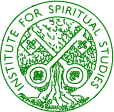
|
|
Christians in Burma |
Seminar delivered by Professor Ross Langmead on June 18th, 2009Professor Ross Langmead teaches Mission Studies at Whitley Baptist College in Melbourne. He has visited the Thai-Burmese border, and has taught in Rangoon. His encounter with Burmese Christians has enriched his life and challenged him spiritually. Burmese news in the secular press features here only occasionally. Ross gave two examples of neglected news that week: reports of two Karen women who had been raped and murdered by pro-government forces, and the fact that six thousand people had fled across the border after army mortar attacks. Ross began and ended his talk by emphasizing three crucial factors: the denial of democracy; the mistreatment of Karens, Chins and other minorities; and the persecution of Christians in this Buddhist country. In an historical overview, he noted that Burma was a British colony from 1886 to 1946, when it gained its independence. Its democratic parliamentary government was replaced in 1962 by a military coup led by General Ne Win, who remained leader until 1988. The army rules on. Ross presented a long litany of the usual post-colonial problems. There is an elite which exploits the country's natural resources, in this case natural gas, teak, minerals, and gemstones. There is the regular closing of universities. The 1988 election was cancelled when democrats in opposition won. The dictatorship lives in self-serving isolation. A new, expensive capital city was created away from popular oversight. There are various police and military controls and restrictions. Only the Chinese and Burmese governments try to control the Internet. Ross then proceeded to give a history of both minorities with considerable numbers of Christians. He heartily recommmended Benedict Rogers' book A Land without People for more detail. Karen make up 7% of Burma's population; Chins 2%. After fleeing, 100,000 Karens now live on the Burmese-Thai border. Ross was fulsome in his praise of the keenness of the students he met, at the Baptist Bible College, for example. He believes Karen culture to be gentle, hospitable, and resourceful. He taught us a three-line round he composed while there. We sang it to the sounds of his guitar:
Answering questions, Ross explained the process by which a pre-selected number of asylum seekers are accepted from these (and other world-wide) camps. He acknowledged the difficulties and intricacies of such a task in upholding both truth and justice. Each camp has a quota. Hence, 800 to 1,000 Chins and 800 to 1,000 Karen now live in Melbourne. In Burma, Christians can't be promoted past a certain occupational level; their church crosses are often destroyed, and the leaders see their religion as a sign of national disloyalty. So despite, or because of, their persecution, Burmese are enthusiastic and evengelistic. Ross gave the startling figure of seventy theological colleges in Rangoon, there being four time the number of Burmese Baptists than Australian ones. Finally, it was emphasized that some refugees have been tortured, and others wait for years to be re-united with their loved ones. For Ross, friendship with Burmese Christians is the key: "Don't forget to show hospitality to strangers, for then we'll find ourselves to be guests in the presence of God."
This site is hosted by St Peter's Eastern Hill,
Melbourne, Australia. |